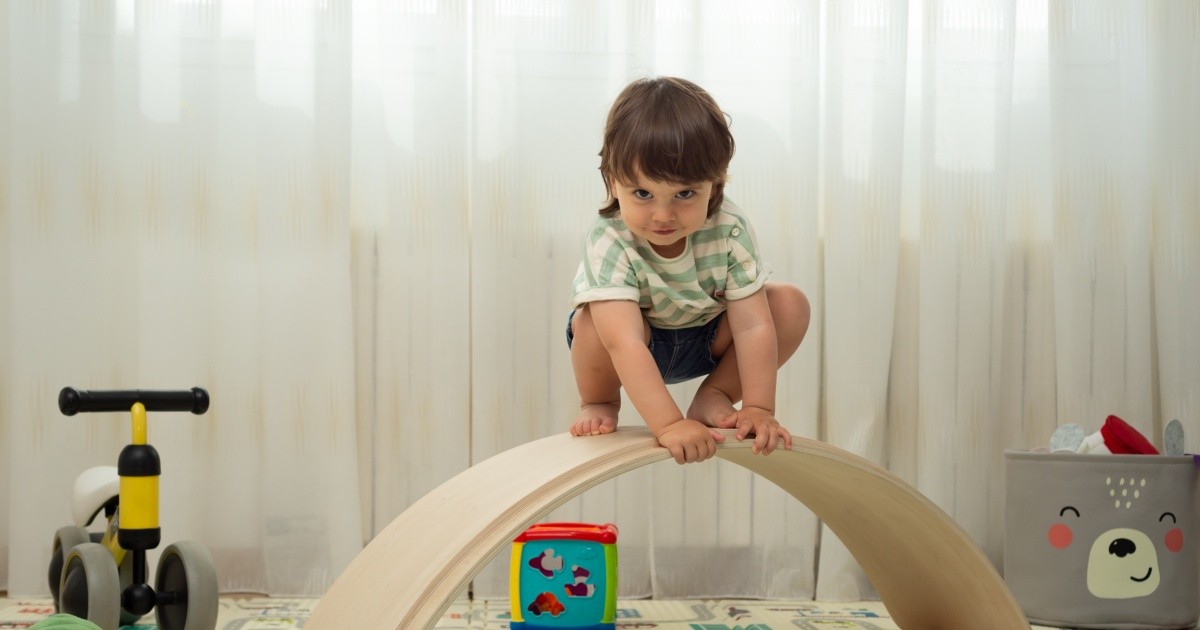Throughout our entire development, humans face eight crisis situations, as established by the psychologist and psychoanalyst erik erikson. Of these eight crises, the first five take place throughout childhood and adolescence, and allow a very interesting analysis of growth to be taken into account when educating and teaching. It allows us to extract the best from each of our students, taking into account their learning style.
Erikson describes at what moments in life these crises take place, and establishes the importance of reaching, in each of them, a balance between the two extremes. Next, we explain the five of them that take place during childhood and adolescence.
1. Trust versus mistrust
This crisis (like the following) takes place during the first three years of age.
Overconfidence, in one of the two extremes, would occur when adults excessively protect the infant. For example, they come as soon as the child cries. At the other extreme, distrust is the result of not receiving attention to their basic needs, and generates withdrawal.
The midpoint between both extremes, balance, can be observed when the child is able to wait without too much demand or tantrums to achieve his goal.
2. Autonomy versus shame
An excess of autonomy, that is, letting children do and undo without rules and limits, generates impulsivity. But when we limit too much, or we don’t let them play, touch, experiment, try, or we do everything for them, we generate dependent people, who don’t accept the mistake.
There will be balance at this stage when the little ones are allowed to do things with appropriate prudence and according to their abilities.
3. Initiative vs. guilt
In the third stage, at the age of three to five, we find the extremes of initiative and guilt. When curiosity and imagination have no limits and rules, we can encourage cruelty: when they grow up, they won’t mind stepping over someone in order to achieve their goal. They will consider others to be weak.
At the other extreme is guilt, the result of not letting the child experiment and continually punishing and criticizing him for his mistakes. You inhibit yourself from trying to do things to avoid making a mistake or feeling guilty.
An adequate balance in this stage is achieved when boys and girls have purposes and feel empowered to guide others.
4. Inferiority versus industry
This crisis happens between the ages of six and eleven. At the inferiority end, the child feels that he cannot do things, that he is not capable of advancing, learning and belonging to a group. It is important to recognize the effort that the child makes when evaluating a task. If this extreme is maintained over time, inertia is generated, the inability to move towards an end. That is, he does not have enough confidence to develop the challenges he faces and manage his emotions in the face of failure.
At the other extreme, we talk about industriousness: children who achieve their goals, but with unlimited freedom.
The balance is in the confrontation of challenges and challenges that are presented to them in life, using their skills and abilities and in situations of failure, managing frustration, assessing what they can and cannot achieve.
Parents and teachers must value the effort, give recognition to what has been achieved, not so much the final objective, and guide the management of emotions when the final result is not achieved.
5. Identity vs. role confusion
With puberty, and up to the age of approximately 20, the extremes that come into conflict are the predominant role of identity (the adolescent considers that his way of being is unique, there is no such thing as gray in difficult situations) in front of a lack of own criteria (the adolescent integrates into conflictive groups trying to be someone before being nothing).
The balance in this stage consists of the adolescent knowing his qualities, his strengths, the possibility of discovering his role and living integrated into society.
Work in educational centers
Teachers can work on this fifth crisis through different activities in class, such as the “hands” activity: we ask students to draw their hands on a sheet of paper. In the right hand, they will write her name and four qualities of themselves and in the left hand, the classmates will write positive aspects that stand out about him or her, therefore, the sheet will rotate throughout the class. At the end, each one reads the qualities aloud.
It is important to let our students and children have the opportunity to face risks –not dangers–, allowing them to discover their qualities, their abilities to face the challenges that are generated in life and those that as teachers we can generate in the classroom. It is the way to see if there is the ability to manage frustration, group management, leadership, creation and group membership. If not, we have a duty to guide the student in managing her emotions.
Queen Castellanos VegaAssociate Professor – Faculty of Education , Zaragoza’s University
This article was originally published on The Conversation. read the original.

















